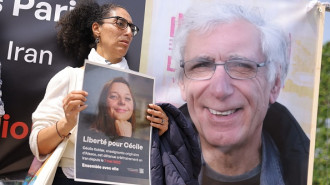Glasgow council moves to ban 'forced Uyghur labour' from solar power purchases
Glasgow City Council on Thursday became the first UK city to move towards banning the purchase of solar panels made by forced Uyghur labour in China.
At a meeting on Thursday, the Scottish council agreed to adopt "sufficient measures" within the year to ensure their solar panel "procurement strategy" doesn’t source materials from the "Uyghur region".
The Labour and Scottish National Party-led government body said they speak will "existing suppliers to review their entire supply chains" and "insert forced labour-specific contract clauses" into future purchases to ensure isn't money being used to oppress the Uyghur people.
The Uyghurs are a persecuted minority Muslim group that the Chinese state has incarcerated en masse.
Human Rights Watch and Amnesty International have documented cases of forced labour, sexual abuse, torture and sterilisations against Uyghurs, which Beijing consistently rebuked maintaining the "camps" are a "re-education programme".
"Approximately 45 percent of the world’s polysilicon [a raw material used to create solar cells] is made in the Uyghur Region under conditions of forced labour," the council wrote in their minutes from the meeting.
"Experts indicate that as much as 97 percent of solar panels could contain materials made by millions of Uyghur forced labourers."
A study by Sheffield Hallam University in 2021 found almost the entire world solar panel industry was implicated in the forced labour of Uyghurs and other minorities.
Uyghurs are forced to work in quarries to crush quartz for the panels and in coal furnaces used to turn the rock into polysilicon, the study found.
This week, the Labour Party also sought to stamp out forced Uyghur labour from imported goods by vowing to pursue legal routes towards declaring China’s crackdown as a "genocide" if elected.
Last year, the UN released a groundbreaking report which documented Chinese government abuses against Uyghurs, saying they may amount to a crime against humanity.
Detainees interviewed for the report described conditions in the so-called "vocational training centres" that amount to torture or other forms of ill-treatment, including being beaten with batons, including electric batons while strapped in a so-called "tiger chair".
They also said they were subjected to interrogation with water being poured in their faces, prolonged solitary confinement; and being forced to sit motionless on small stools for prolonged periods of time.





 Follow the Middle East's top stories in English at The New Arab on Google News
Follow the Middle East's top stories in English at The New Arab on Google News
![The law could be enforced against teachers without prior notice [Getty]](/sites/default/files/styles/image_330x185/public/2178740715.jpeg?h=a5f2f23a&itok=xMdFOAIF)

